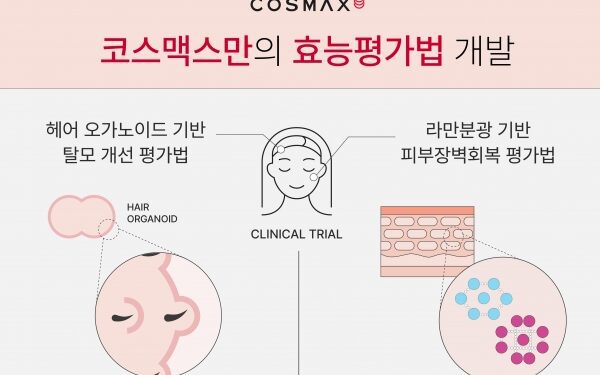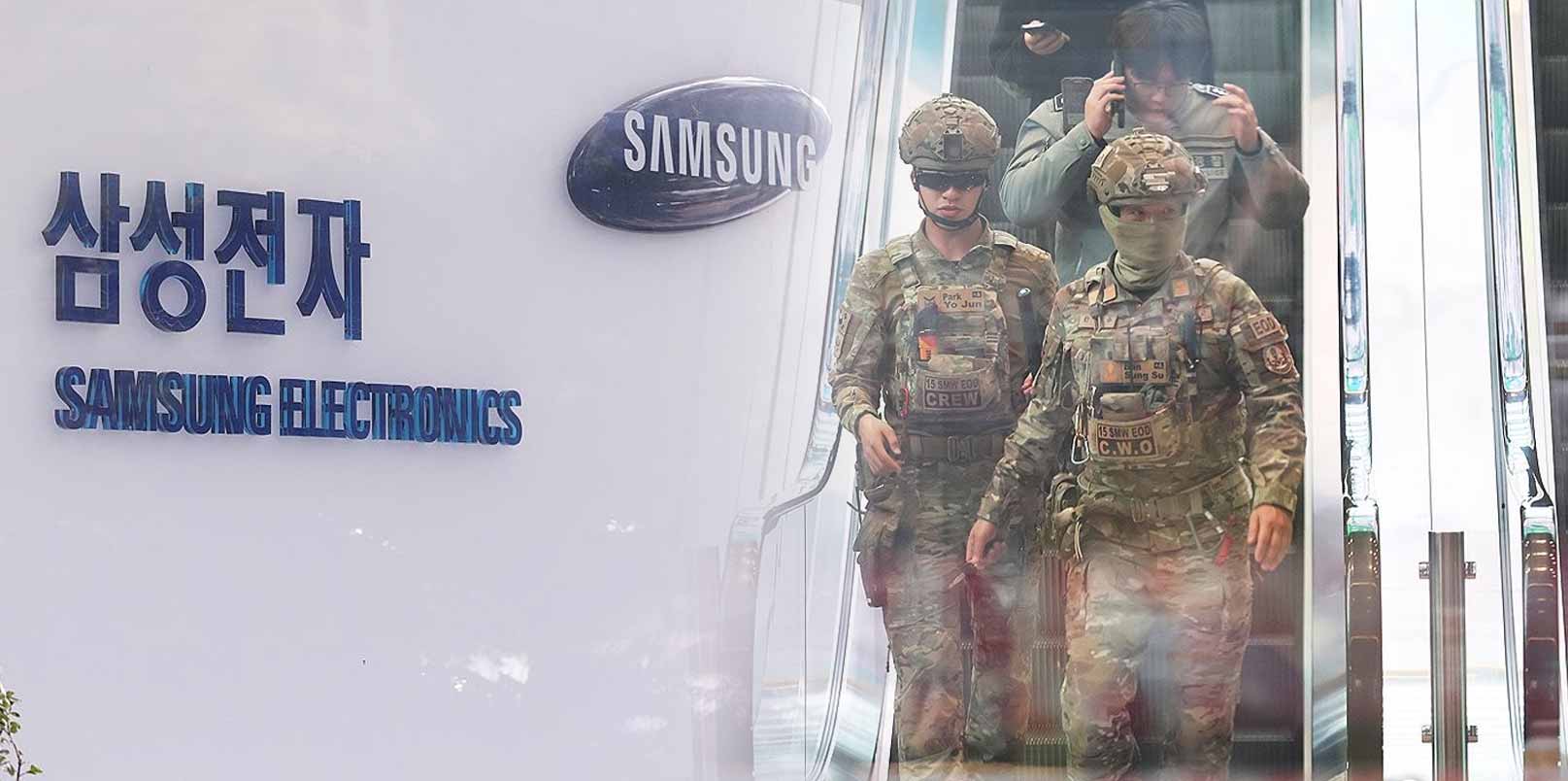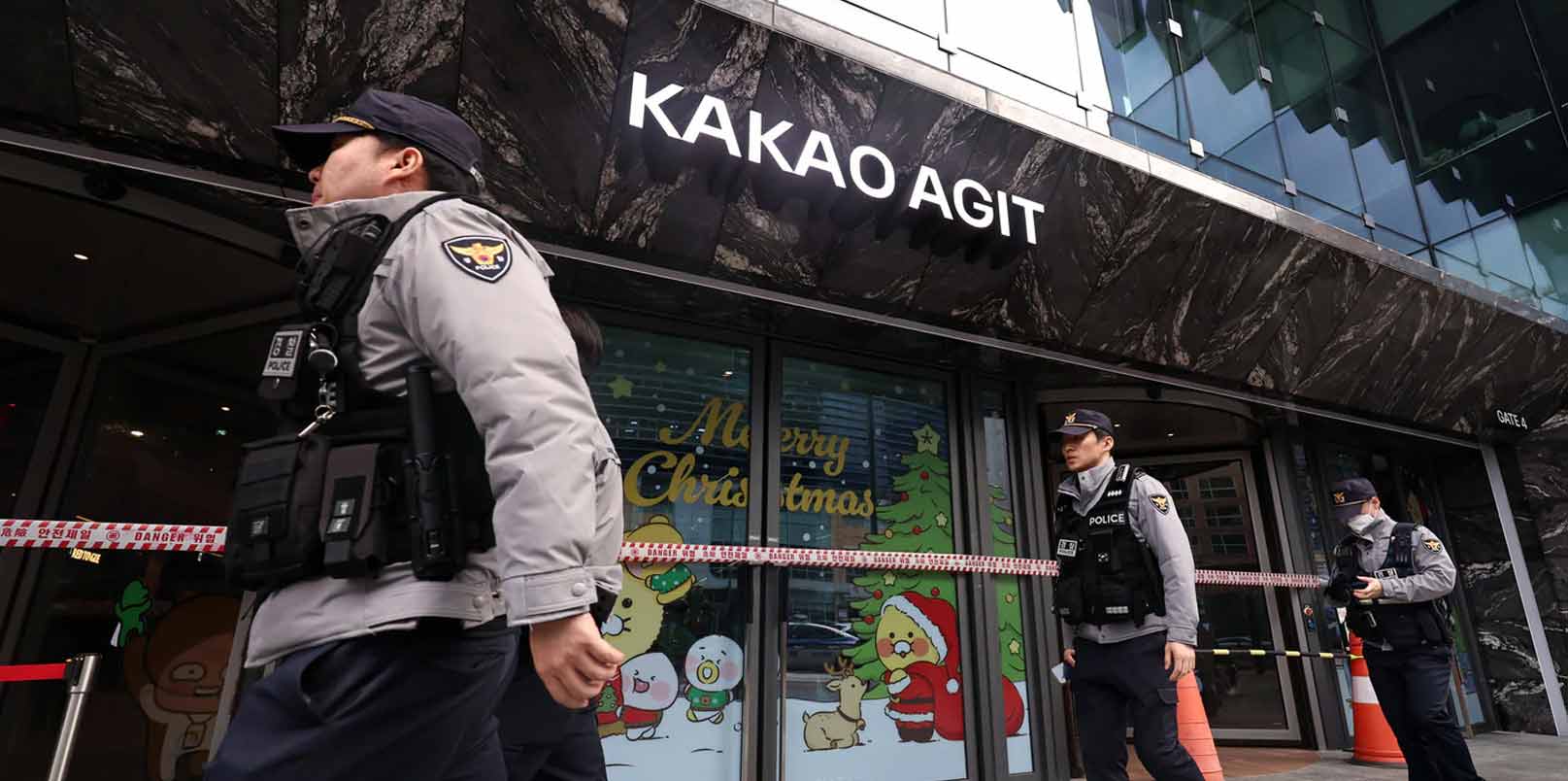Cosmax (CEO Lee Kyung-soo), a company that develops and produces cosmetics and health supplements, presented new technologies related to skin efficacy evaluation method at the ‘2023 International Federation of Societies of Cosmetic Chemists (IFSCC)’ held in Barcelona, Spain from September 5 to 7 (local time).
Recently, so-called “derma cosmetics” that help restore the skin barrier have gained popularity in the cosmetic industry. As a result, the scientific community has become interested in methods to evaluate the extent to which derma cosmetics restore the skin barrier.
Currently, the only scientifically accepted method to assess skin barrier recovery is the “transepidermal water loss (TEWL) measurement method”. This method has been used for a long time because it can provide simple and accurate results. However, in order to obtain accurate results, environmental conditions such as indoor humidity and temperature must be strictly maintained. So the method was difficult to confirm the degree of skin barrier recovery according to the cause of skin damage.
At this conference, Cosmax announced a “Raman spectroscopy-based skin barrier recovery assessment method” that can complement TEWL. Raman spectroscopy is a measurement method that confirms the inherent properties of a material through the scattering phenomenon when light passes through a specific material.
To apply Raman spectroscopy to the skin, Cosmax analyzed the stratum corneum of the skin and quantified the condition of the skin barrier. The stratum corneum of the skin has both a dense and tight “orthorhombic” arrangement and a relatively loose “hexagonal” arrangement. Cosmax has developed a new skin barrier assessment method that uses the ratio of these two lipid structures as a variable. After applying cosmetics to damaged skin, it was possible to monitor the recovery of the skin barrier in real time by tracking the process of changes in the ratio of the two lipid sequences.
While existing assessment methods are limited to the skin surface, the new technology uses Raman spectroscopy to detect changes in the structure of the stratum corneum as a function of skin depth. As a result, the academic community notes that the world’s first method has been developed to confirm the restoration of the actual skin barrier, including the interior of the skin.
In addition, Cosmax also announced a method for measuring the efficacy of functional cosmetics for hair loss using “hair organoids”.
Organoids are analogues of stem cells that are cultured or recombined. Because organoids closely mimic the human body, they can reproduce the composition, structure, and functional specificity of cells. In this study, cultured hair organoids were used to evaluate the extent to which the condition of the scalp, hair roots and hair was improved.
This was a joint study with Organoid Science (CEO Yoo Jong-man), a biotech start-up company located in Pangyo Techno Valley, Seongnam City. In this study, Cosmax developed a model to test male pattern baldness and also verified the effectiveness of soybean embryo extract, Cosmax’s own proprietary material, in suppressing male pattern baldness.
When the soybean embryo extract was applied to hair organoids together with DHT (dihydrotestosterone), it was confirmed that the hair roots that had lost hair due to DHT were protected by the soybean embryo extract, and the effect of activating the hair roots with reduced DHT was also confirmed.
The results of this study were well received at this seminar as a new evaluation method that would narrow the gap between in vitro cell experiments and clinical results applied to the human body.
A Cosmax official said, “Our efficacy assessment method may become a new ‘game changer’ in the cosmetics industry in the future. Cosmax will strive to become a world-leading developer of new cosmetics by further securing these basic technologies.”
Cosmax Group is one of the flagship biotech companies located in Pangyo Techno Valley, Seongnam. In addition to Cosmax, which leads Korean beauty industry, Cosmax Group also includes Cosmax NBT and Cosmax Bio, which produce health supplements and pharmaceuticals respectively, and manufacturing companies that develop and produce cosmetics, special equipment, and containers.
For inquiries and connections with Korean tech companies mentioned in this article, contact us at [email protected]. We’re here to facilitate valuable partnerships.
Also Read,
- Korean startup ZEVAHEALS’ green cosmetics makes skincare safer and natural
- What’s in the box: Korean startup’s innovative ‘Ojo Blind’ app for cosmetics product
- Beauty tech startup Birdview attracts 20 billion won pre-IPO investment to upgrade Hwa-Hae platform
- Elinha, that operates a K-beauty platform for Japanese consumers, attracts investment
Keep tab on latest news in the Korean startup ecosystem & follow us on LinkedIN, Facebook, and Twitter for more exciting updates and insights.






